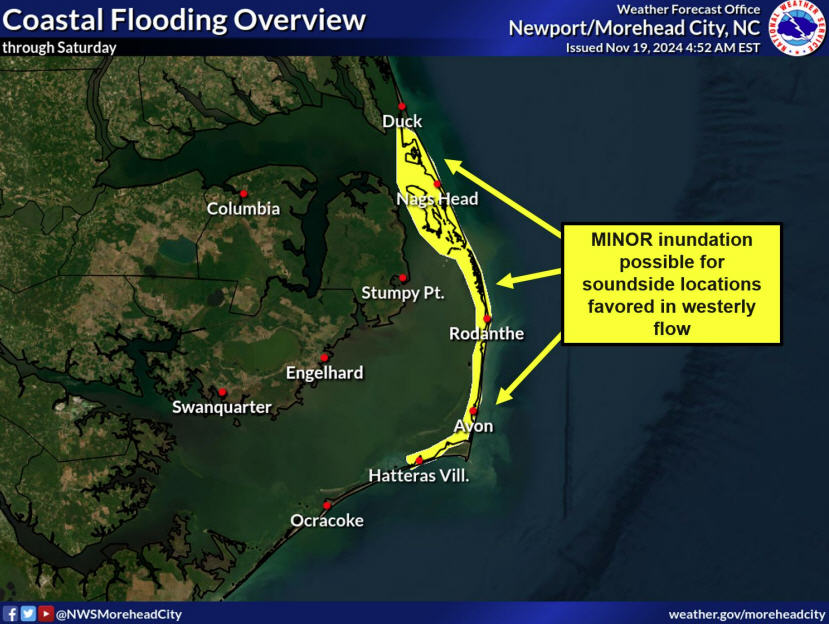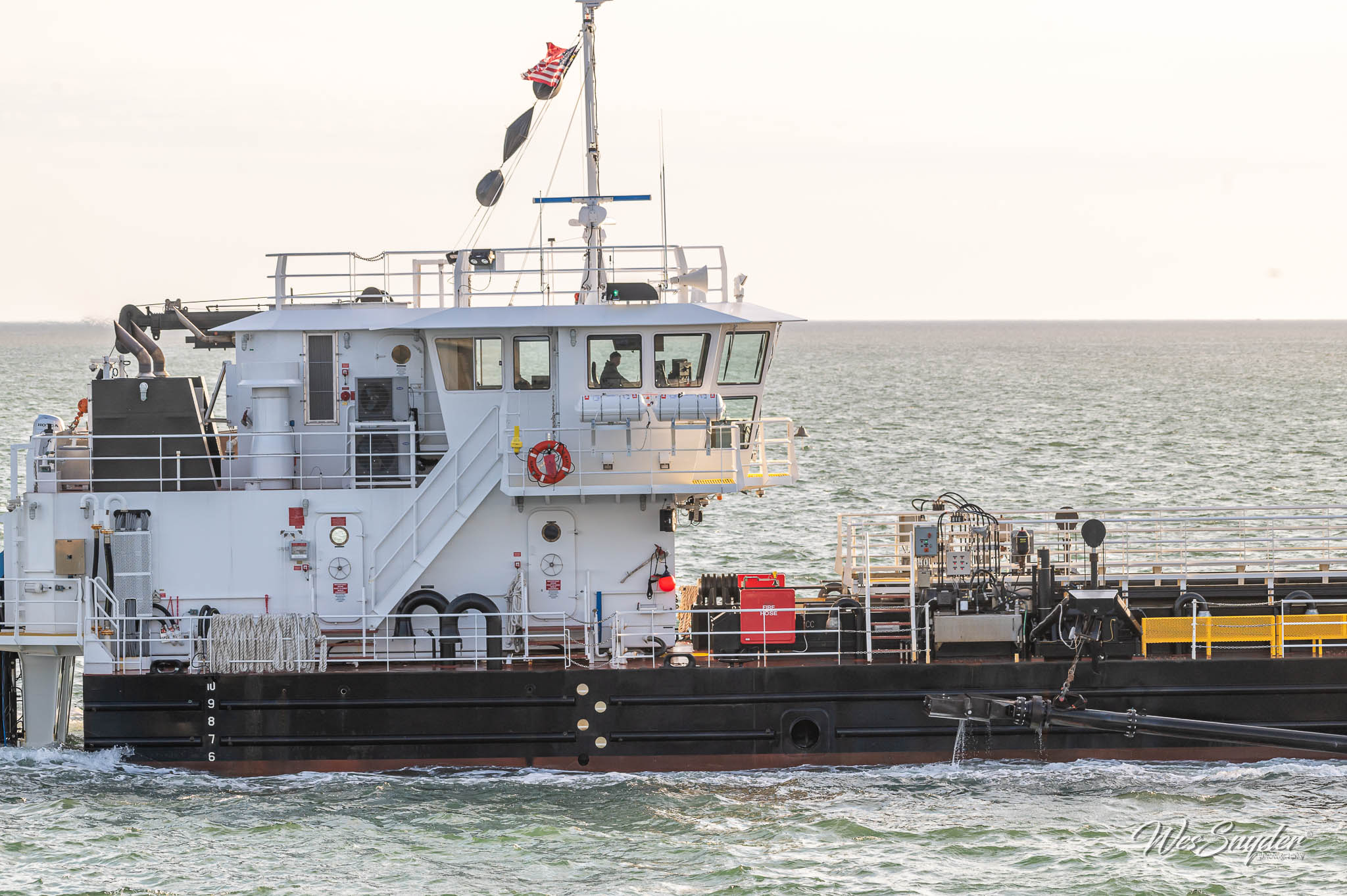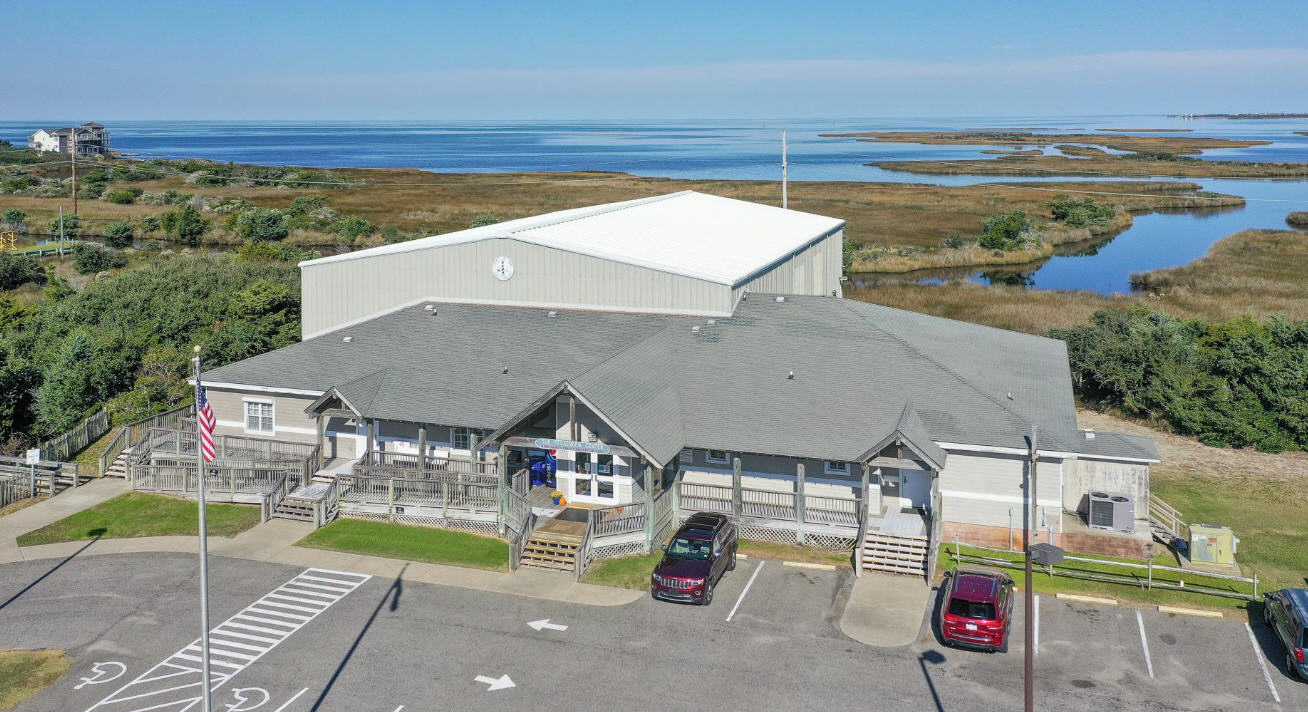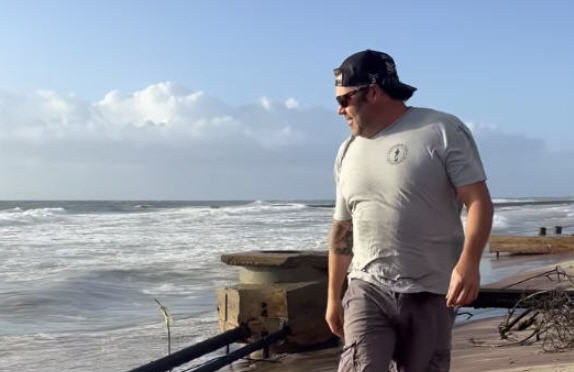Budget strips certain powers from local governments
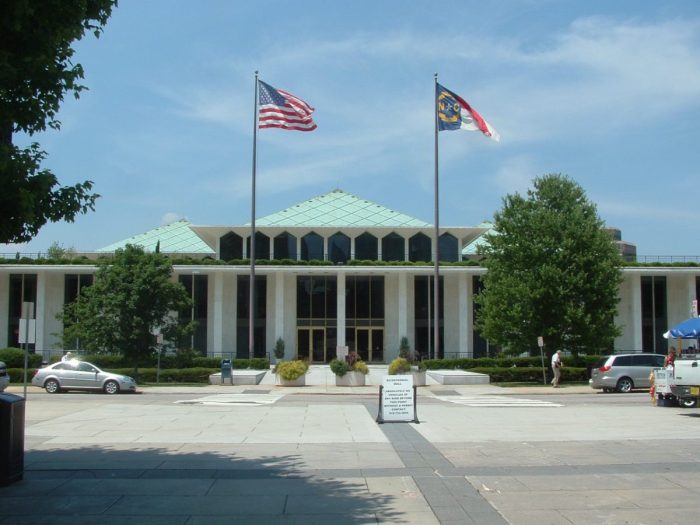
by
Assembly approved a long-awaited state budget that includes provisions that strip counties and municipalities of certain governing powers.
The Republican-controlled legislature last Friday passed a $30 billion budget, one that boosts Medicaid, bans local governments from regulating the use of plastics, grants millions in funding for living shorelines projects, and creates an animal-waste-to-fertilizer conversion cost-share program.
Shortly after legislature’s vote Friday morning, Gov. Roy Cooper announced that he will not sign the 2023 Appropriations Bill, but will allow it to become law.
“Make no mistake, overall, this is a bad budget that seriously shortchanges our schools, prioritizes power grabs, keeps shady backroom deals secret and blatantly violates the constitution, and many of its provisions will face legal action,” Cooper said.
In the hours leading up to the General Assembly’s vote, environmental groups and local governments scrambled to get the word out about provisions in the then-proposed budget that takes away some rule-making authority from counties and municipalities.
Cape Fear River Watch circulated an email citing a section in the bill that prohibits counties and cities from adopting rules, regulations, ordinances, or resolutions that restrict, tax, or charge fees on so-called “auxiliary containers.” This includes single-use plastic bags, cups, bottles and other types of food packaging.
Asheville officials have been debating banning single-use plastic bags and, in Durham, environmentalists were pushing for that city to require retailers tack on a 10-cent fee for each thin, plastic bag given out to customers in restaurants, grocery stores and shops.
Rob Clark, Cape Fear River Watch’s water quality programs manager, told Coastal Review in a telephone interview Monday that the organization is “obviously unhappy” with the legislature’s decision.
“If local governments want to pass sustainability policies, it’s unfortunate that the state is coming in and stepping over them and saying, ‘No, you can’t do this in your own county,’” he said. “They should have the ability to pass policies that they think are going to be beneficial to their community’s health and their community’s environment.”
Plastics make up a significant amount of the litter collected through various cleanup efforts the organization hosts in Wilmington and New Hanover County.
The bill does specify that counties may regulate the use of auxiliary containers on county-owned and county-maintained property.
“That’s good that that’s in there, but that is tiny compared to what we’re actually seeing in the field,” Clark said. “The vast majority of litter that I see in the environment comes from private industries. The plastic bags that I’m finding, or the plastic water bottles or the pieces of Styrofoam that I see, those aren’t coming from the government sectors.”
The ban on regulating single-use plastics would have broad effects, he said, because plastics break down into microplastics, which are being found in streams, rivers and in the deep recesses of oceans throughout the world.
Dare County housing provision
The appropriations bill also specifically targets how Dare County municipalities govern affordable housing projects.
Dare County has dedicated $9 million, and the state has allocated $35 million, to address what officials there call a housing crisis for essential workers – from teachers and law enforcement officers to restaurant cooks and waitstaff – earning low to moderate incomes.
Three towns in Dare County, Manteo, Kill Devil Hills and Nags Head, have rejected proposed affordable housing projects because of local zoning laws and concerns about proposed housing project locations and providing sewer service.
In July, Dare County officials returned to Manteo with a second request for the town to extend sewer service to 46 apartments that would be built just outside town limits and require about a little more than 11,800 gallons per day of service, Manteo Town Manager Melissa Dickerson said.
A provision in the appropriations bill mandates towns within a 1-mile radius of newly constructed affordable housing must supply utilities if that town has sufficient capacity to do so.
The rule also would exempt new construction of affordable housing from municipal and zoning regulations, which include public hearings and input, setbacks and height limits.
“That’s the big concern that comes to the municipalities when you think about how intentional our zoning is, you know, we don’t allow buildings taller than our fire department’s ability to fight a fire and if zoning isn’t applied then how do we ensure that those buildings aren’t taller than our ability to handle life safety issues?” Dickerson said.
Manteo commissioners at their meeting last week unanimously gave Dickerson the green light to draft a resolution opposing the provision. During that meeting, members of the board and residents called the provision “dirty politics,” “underhanded,” and questioned its legality.
“Obviously, it was kind of late, and I think now we’re at a point where we’re going to have to look at how to manage this on the back end,” Dickerson said.
The board’s next meeting is Oct. 4.
“I feel pretty certain that we’ll come up with a plan at that point,” Dickerson said.
Gambling expansion dropped
The General Assembly’s vote Friday ended months of gridlock over a proposal to expand Medicaid with the condition that the budget also include legalizing more casinos on and off tribal lands and authorizing thousands of video lottery terminals across the state.
That stipulation was dropped less than two days before the House voted last Thursday when Senate leader Phil Berger and House Speaker Tim Moore announced an agreement had been reached to keep Medicaid in and remove casinos from the budget.
Cooper called the decision to expand Medicaid, which will insure more than 600,000 North Carolinians, “a life-saving, monumental decision for our state.”
“However, we must recognize this irresponsible legislature’s decade of refusal to expand Medicaid, which has caused life and death situations for so many North Carolinians and threatened the very existence of numerous rural hospitals,” he said. “I will not allow people who are crying for help to wait any longer, so I am directing our Department of Health and Human Services to begin today the process for expanding Medicaid while allowing this budget to become law without my signature.”
Nature-based solutions
The North Carolina Department of Environmental Quality has been provisioned $7.5 million to provide grants for the North Carolina Coastal Federation for stormwater management, living shorelines and marine debris removal.
“These funds support innovative work by the Coastal Federation that allows us to advance the use of nature-based solutions that protect water quality, reduce flooding and enhance fishery habitats. In addition, they will help to develop the first of its kind shellfish logistics hub that will support small businesses making a living off of our productive coastal waters,” Coastal Federation Executive Director Todd Miller told Coastal Review.
The Coastal Federation, which publishes Coastal Review, will use $5 million of that for a Stormwater Retrofit Pilot Cost-Share Program. The nonprofit organization and DEQ are to work together to create guidelines to provide for upgrades and repairs to stormwater control measures.
The nonprofit has been provisioned $2 million to provide up to a 50% match for federal, state, or private funds for living shoreline projects in coastal counties. Residents must be able to demonstrate how their receiving these funds will benefit the public to be considered.
The organization’s Lost Fishery Gear Recovery Program has been allocated $500,000. The program takes place in late winter each year to remove debris from coastal waters employs area fishers and other private partners to remove debris from coastal waters. The funds also will go to the investigation, removal and disposal of abandoned and derelict vessels in state public trust waters in coastal counties.
There is a directed grant of $800,000 to the Coastal Federation for capital costs and equipment associated with an aquaculture hub project, as well.
Infrastructure funding
Several local governments and public entities have been allocated funding for water and wastewater infrastructure projects.
The Cape Fear Public Utility Authority was allocated $35 million. Of that, $18 million is to go to drinking water extensions to unserved communities in New Hanover County impacted by per- and polyfluoroalkyl substances, or PFAS. The remaining $17 million is for municipal consolidation and regionalization of water and sewer systems in New Hanover County impacted by PFAS.
Regarding the $18 million for unserved communities, a spokesperson said Monday that the public utility will work with state and local partners to determine where the water service extensions will be constructed. The remaining $17 million is for system consolidation.
“CFPUA and Wrightsville Beach are currently reviewing the possibility of a consolidation, in which CFPUA would take ownership of water and sewer infrastructure in Wrightsville Beach. The terms of that consolidation are still being reviewed by both parties,” they said. “We are very grateful to our region’s legislative delegation for securing funding to benefit CFPUA’s customers and our community.”
Currituck County Manager Ike McRee told Coastal Review that the county appreciates the $16 million allocated for utility infrastructure. There is $6 million for the Mainland Water Treatment Plant project, and $10 million for the Moyock water or wastewater system.
“The appropriated funds will ensure water capacity for the county’s growing population. The funds will also allow for the replacement of a wastewater treatment plant that is unable to meet discharge permit limits,” he said. “The new wastewater treatment plant will meet permit discharge limits and accommodate expected population growth and economic development in the county.”
Other provisions
Other notable provisions in the budget include a plan for animal waste, several million for water quality, stormwater management, resiliency and recovery efforts, and mitigation strategies.
A five-year statewide cost-share program to use technologies that convert sludge from animal waste, including hogs and cattle, into fertilizer has been established. The program would match dollar-for-dollar with farmers who own or operate animal waste lagoons.
DEQ is allocated $20 million for the Coastal Storm Damage Mitigation Fund, which provides grants to local governments, and $16.1 million for the Local Assistance for Stormwater Infrastructure Investments Fund to provide grants to improve or create infrastructure for controlling stormwater quantity and quality.
DEQ’s Division of Coastal Management will receive $10 million for the Resilient Coastal Communities Program to provide funding for the implementation or construction of planned, prioritized, and engineered resilience projects in the 20 coastal counties.
The Department of Public Safety’s Division of Emergency Management is allocated $30 million for long-term recovery and mitigation grants, at least $5 million of which will go to transportation resiliency projects.
The division has $5 million for the Local Disaster Shelter Capacity Grant Program to fund upgrades for emergency shelters, and $5 million to conduct flood studies, risk assessment, and building mitigation strategies through the State Floodplain Mapping Program.
There is $3.3 million for detailed mapping and risk impact studies for 250 existing flood gauges to provide baseline information on those gauges for use in the Division’s Flood Inundation Mapping and Alert Network.
The North Carolina Wildlife Resources Commission is allocated $10 million for the Lake Mattamuskeet outfall canal, and $1 million to provide a grant to the nonprofit Nature Conservancy for a pilot project to protect and restore critically important peatlands in eastern North Carolina for the purpose of increasing community flood resilience, improving water quality and wildlife habitat, and reducing wildfire risk.
The North Carolina Collaboratory at the University of North Carolina Chapel Hill will see $340,000 for the FerryMon program, and $320,000 for the ModMon program, both are water monitoring projects.
The Office of State Budget and Management has been allocated $2 million for the North Carolina Insurance Underwriting Association for the Coastal Resilient Roof Grant Pilot Program, $1 million to North Carolina Resource Conservation and Development Association for flood mitigation projects, and $755,000 to nonprofit United Way of Coastal Carolina Inc. to support the Pamlico County Disaster Recovery Coalition.
The Department of Insurance for the State Property Fire Insurance Fund will receive $20 million to help cover the budget gap from increases in expenditures related to recent natural disasters.
The Department of Agriculture and Consumer Services has been allocated $20 million for the Streamflow Rehabilitation Assistance Program, which provides grants to projects that help reduce flooding and restore streams across North Carolina.




